
Airports
A complete list of IATA Airports including IATA code, ICAO code, Time zone, name, city code, two-letter ISO country code, URL, elevation above sea level in feet, coordinates in decimal degrees, geo encoded city, county and state.
Stars: 67
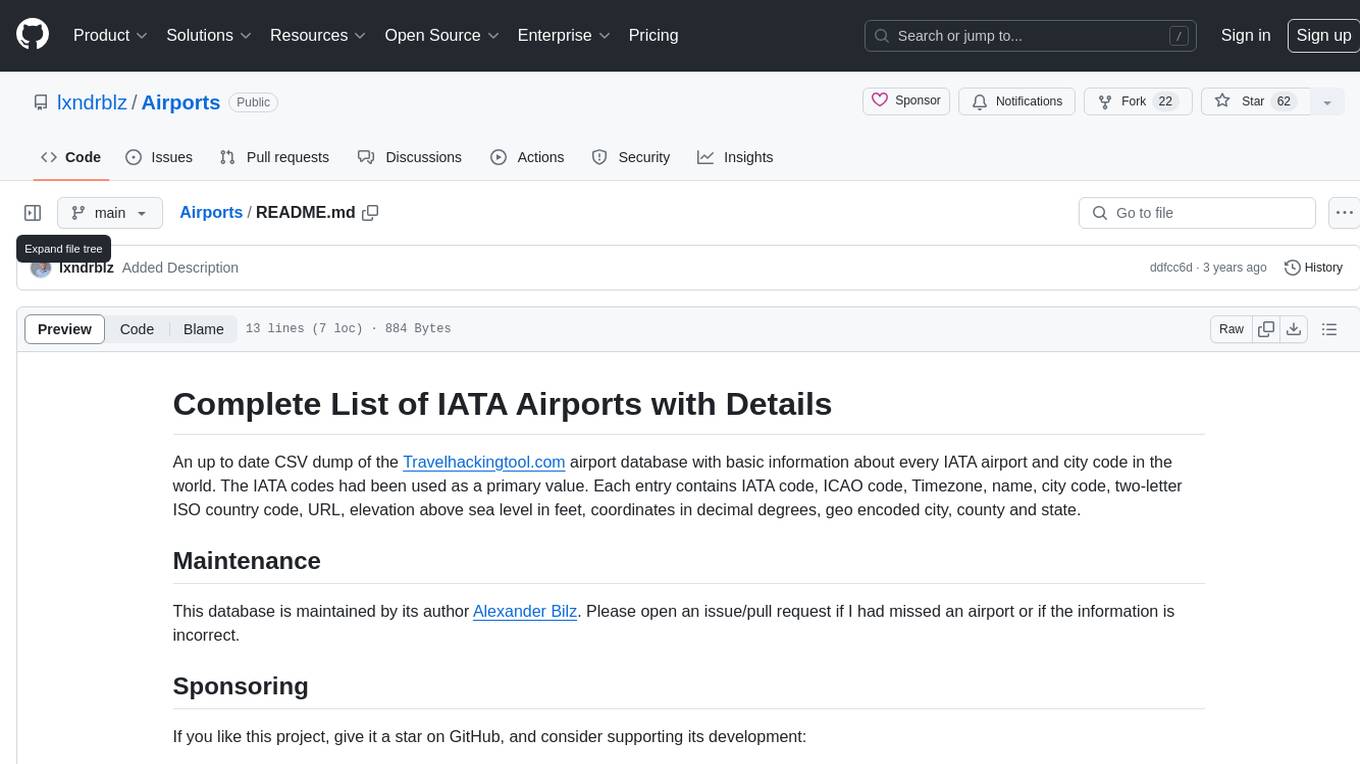
Airports is a repository containing an up-to-date CSV dump of the Travelhackingtool.com airport database. It provides basic information about every IATA airport and city code worldwide, including IATA code, ICAO code, timezone, name, city code, country code, URL, elevation, coordinates, and geo-encoded city, county, and state.
README:
An up to date CSV dump of the Travelhackingtool.com airport database with basic information about every IATA airport and city code in the world. The IATA codes had been used as a primary value. Each entry contains IATA code, ICAO code, Timezone, name, city code, two-letter ISO country code, URL, elevation above sea level in feet, latitude and longitude in decimal degrees, geo encoded city, county and state.
This database is maintained by its author Alexander Bilz. Please open an issue/pull request if I had missed an airport or if the information is incorrect.
If you like this project, give it a star on GitHub, and consider supporting its development:
For Tasks:
Click tags to check more tools for each tasksFor Jobs:
Alternative AI tools for Airports
Similar Open Source Tools

Airports
Airports is a repository containing an up-to-date CSV dump of the Travelhackingtool.com airport database. It provides basic information about every IATA airport and city code worldwide, including IATA code, ICAO code, timezone, name, city code, country code, URL, elevation, coordinates, and geo-encoded city, county, and state.
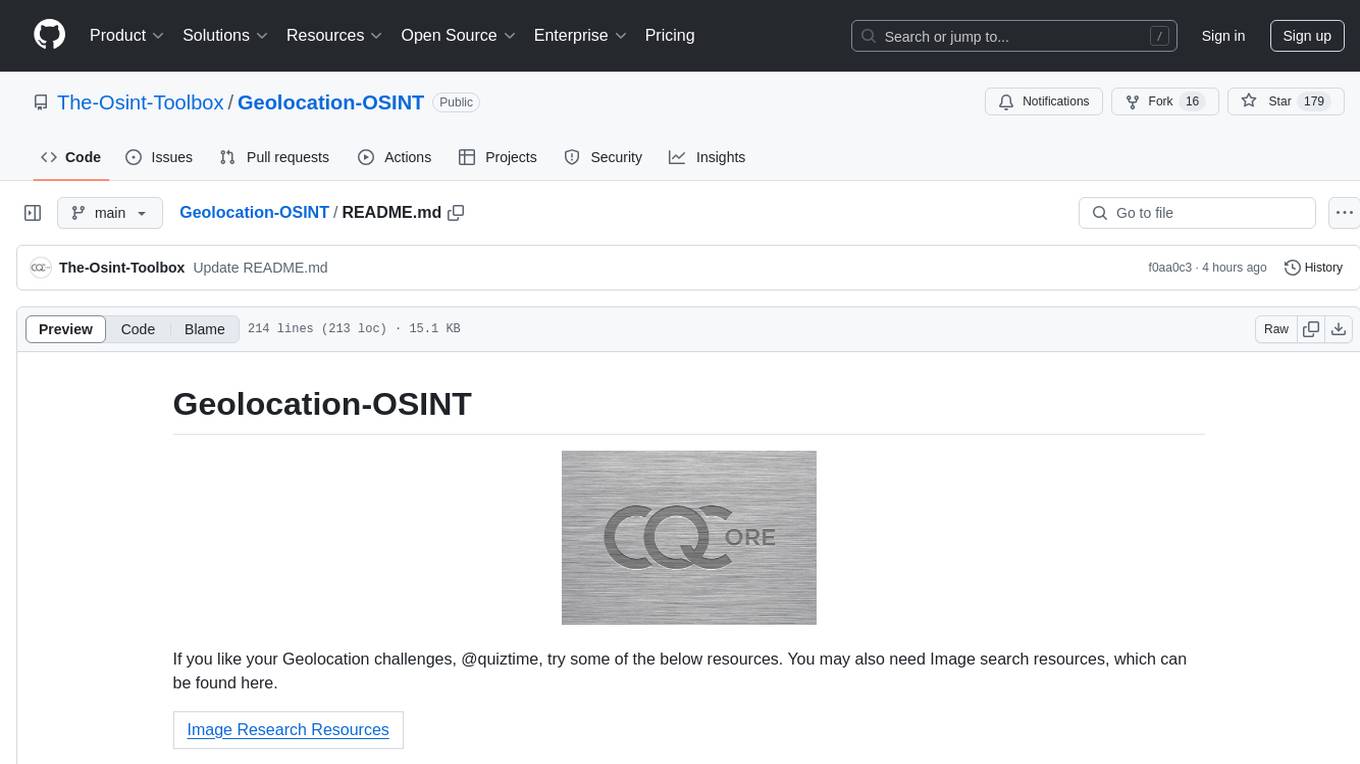
Geolocation-OSINT
Geolocation-OSINT is a repository that provides a comprehensive list of resources, tools, and platforms for geolocation challenges and open-source intelligence. It includes a wide range of mapping services, image search tools, AI-powered geolocation estimators, and satellite imagery archives. The repository covers various aspects of geolocation, from finding GPS coordinates to estimating the size of objects in images. Users can access tools for social media monitoring, street-level imagery, and geospatial analysis. Geolocation-OSINT is a valuable resource for individuals interested in geolocation, mapping, and intelligence gathering.
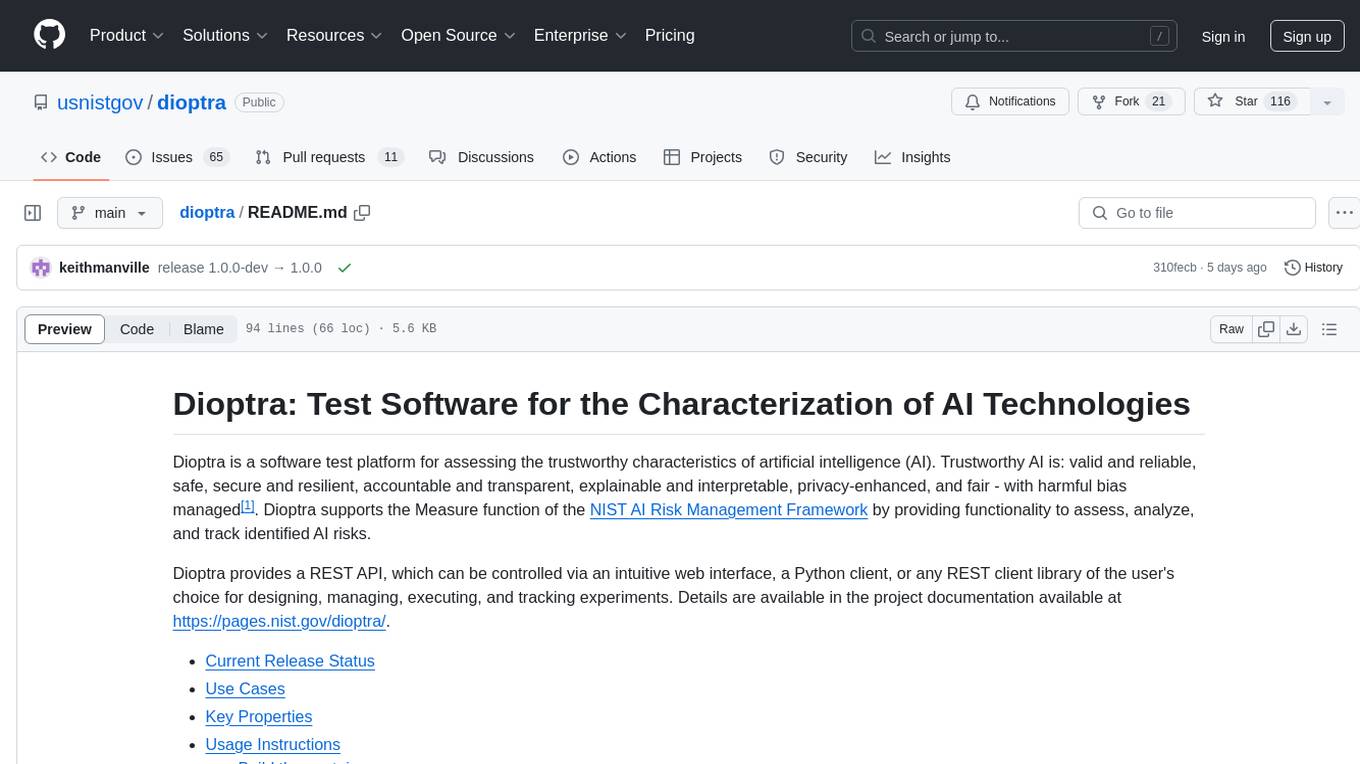
dioptra
Dioptra is a software test platform for assessing the trustworthy characteristics of artificial intelligence (AI). It supports the NIST AI Risk Management Framework by providing functionality to assess, analyze, and track identified AI risks. Dioptra provides a REST API and can be controlled via a web interface or Python client for designing, managing, executing, and tracking experiments. It aims to be reproducible, traceable, extensible, interoperable, modular, secure, interactive, shareable, and reusable.
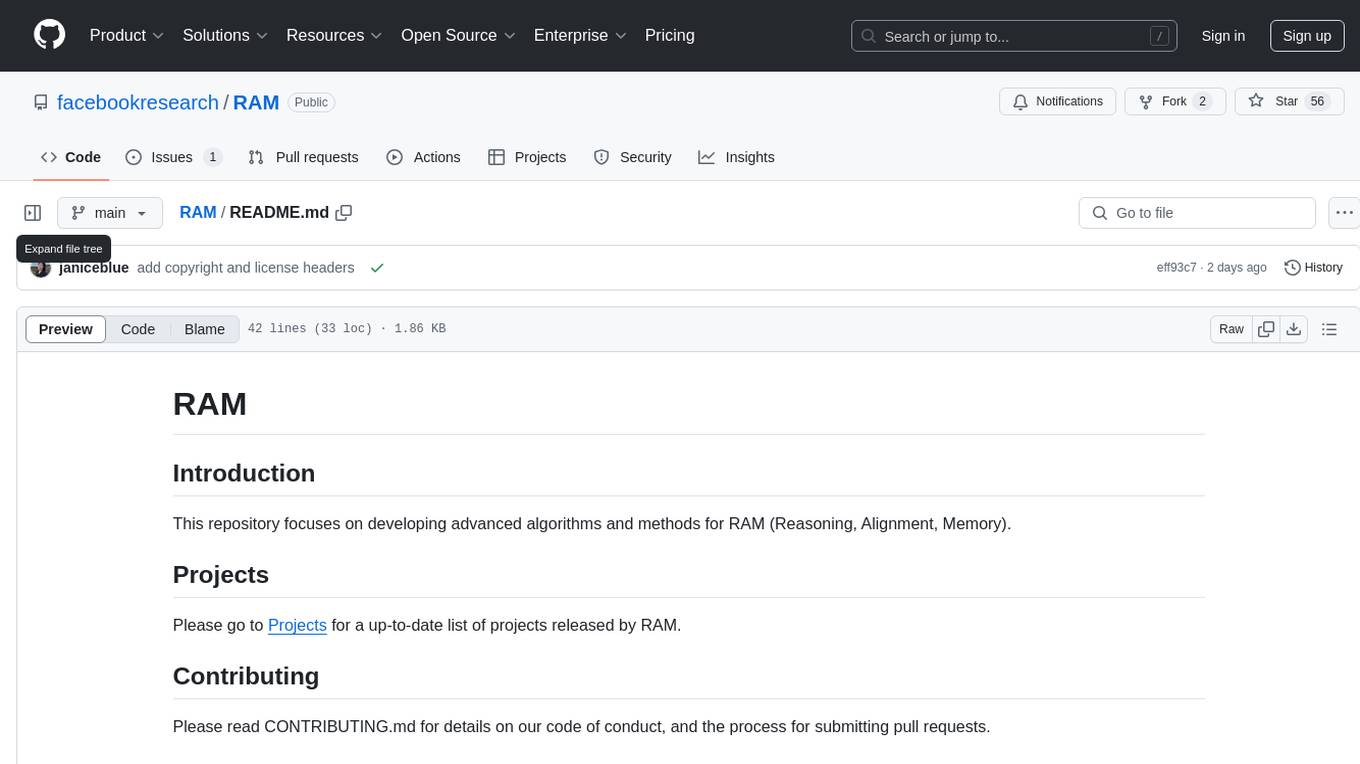
RAM
This repository, RAM, focuses on developing advanced algorithms and methods for Reasoning, Alignment, Memory. It contains projects related to these areas and is maintained by a team of individuals. The repository is licensed under the MIT License.
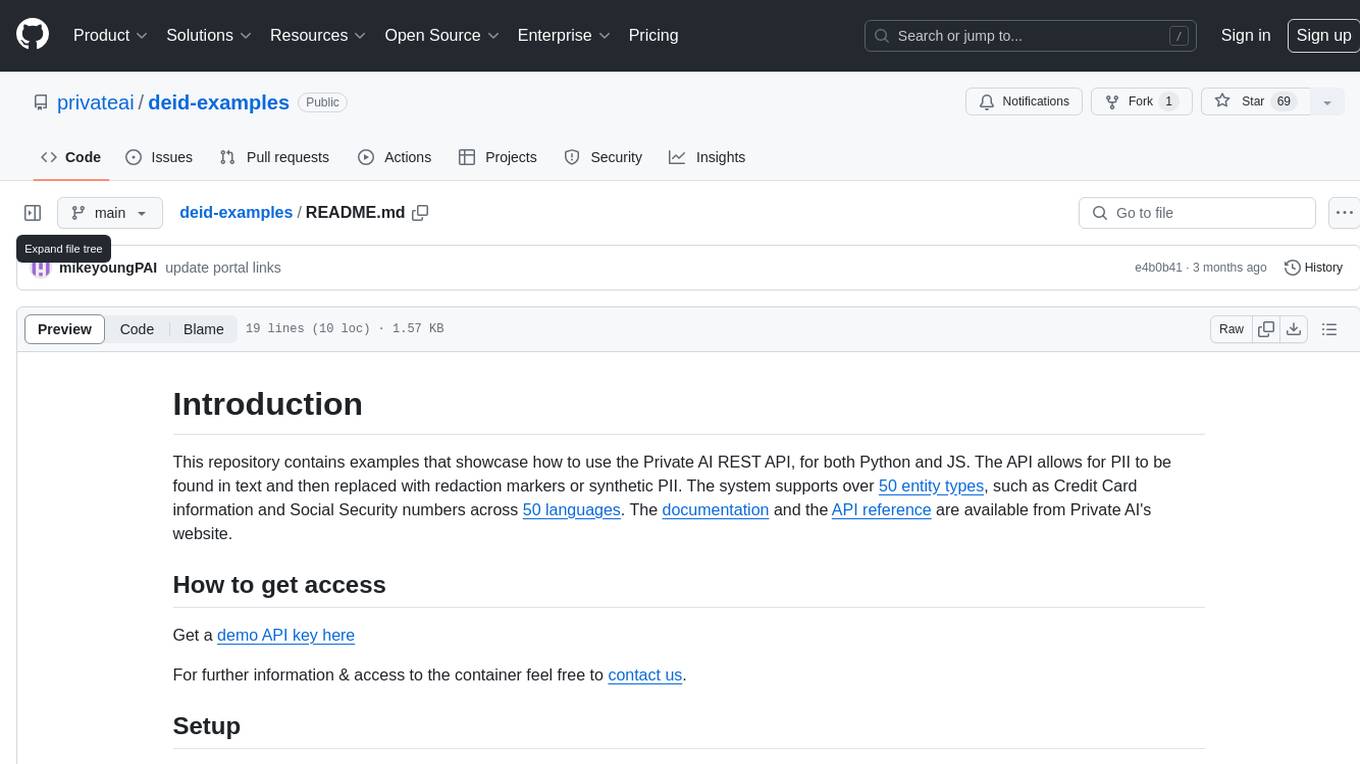
deid-examples
This repository contains examples demonstrating how to use the Private AI REST API for identifying and replacing Personally Identifiable Information (PII) in text. The API supports over 50 entity types, such as Credit Card information and Social Security numbers, across 50 languages. Users can access documentation and the API reference on Private AI's website. The examples include common API call scenarios and use cases in both Python and JavaScript, with additional content related to PrivateGPT for secure work with Language Models (LLMs).
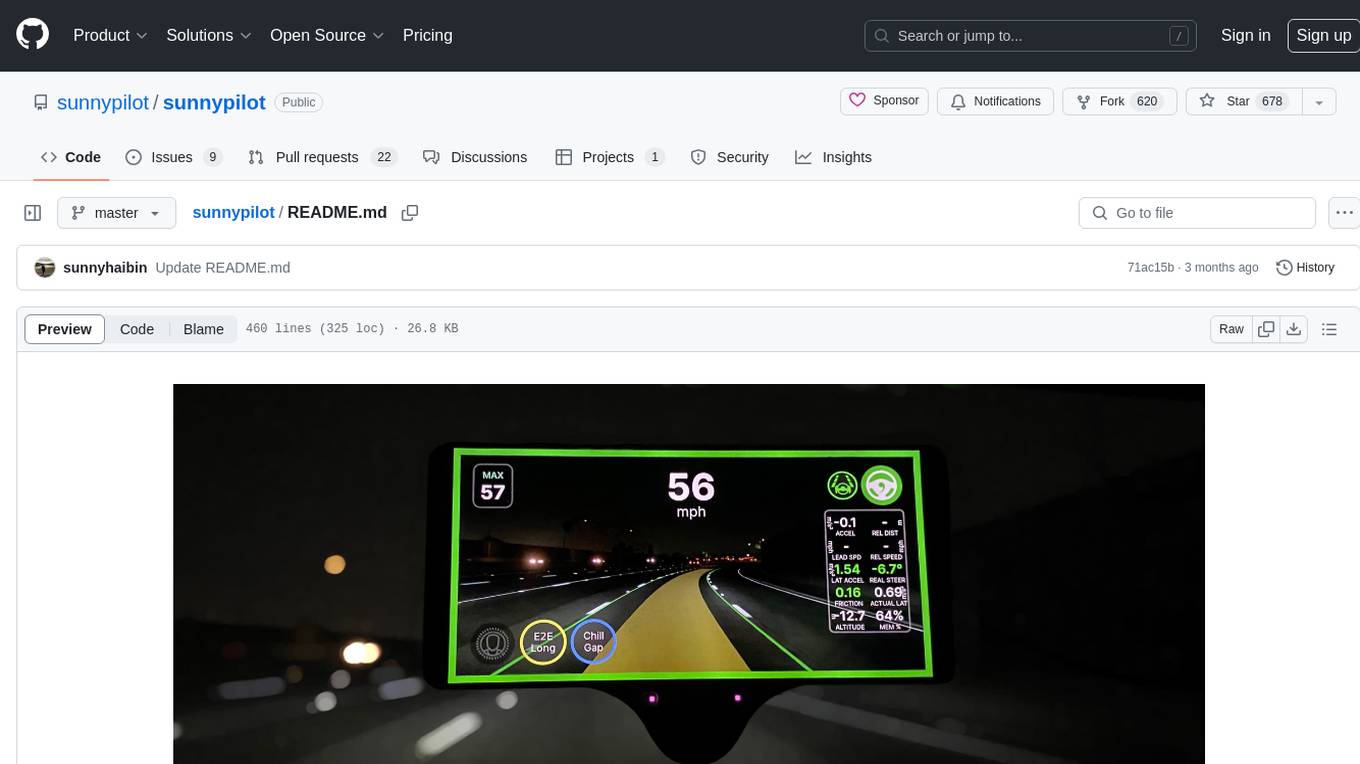
sunnypilot
Sunnypilot is a fork of comma.ai's openpilot, offering a unique driving experience for over 250+ supported car makes and models with modified behaviors of driving assist engagements. It complies with comma.ai's safety rules and provides features like Modified Assistive Driving Safety, Dynamic Lane Profile, Enhanced Speed Control, Gap Adjust Cruise, and more. Users can install it on supported devices and cars following detailed instructions, ensuring a safe and enhanced driving experience.
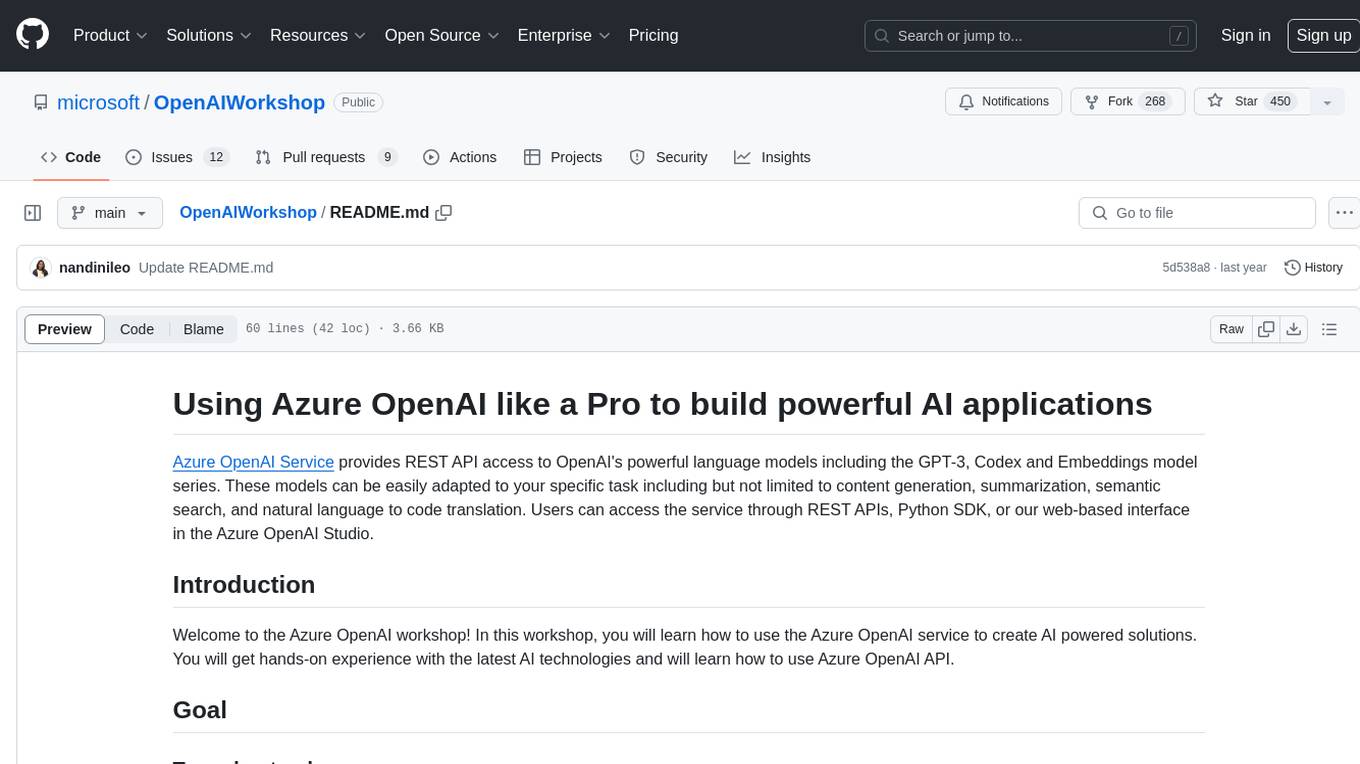
OpenAIWorkshop
Azure OpenAI Service provides REST API access to OpenAI's powerful language models including GPT-3, Codex and Embeddings. Users can easily adapt models for content generation, summarization, semantic search, and natural language to code translation. The workshop covers basics, prompt engineering, common NLP tasks, generative tasks, conversational dialog, and learning methods. It guides users to build applications with PowerApp, query SQL data, create data pipelines, and work with proprietary datasets. Target audience includes Power Users, Software Engineers, Data Scientists, and AI architects and Managers.
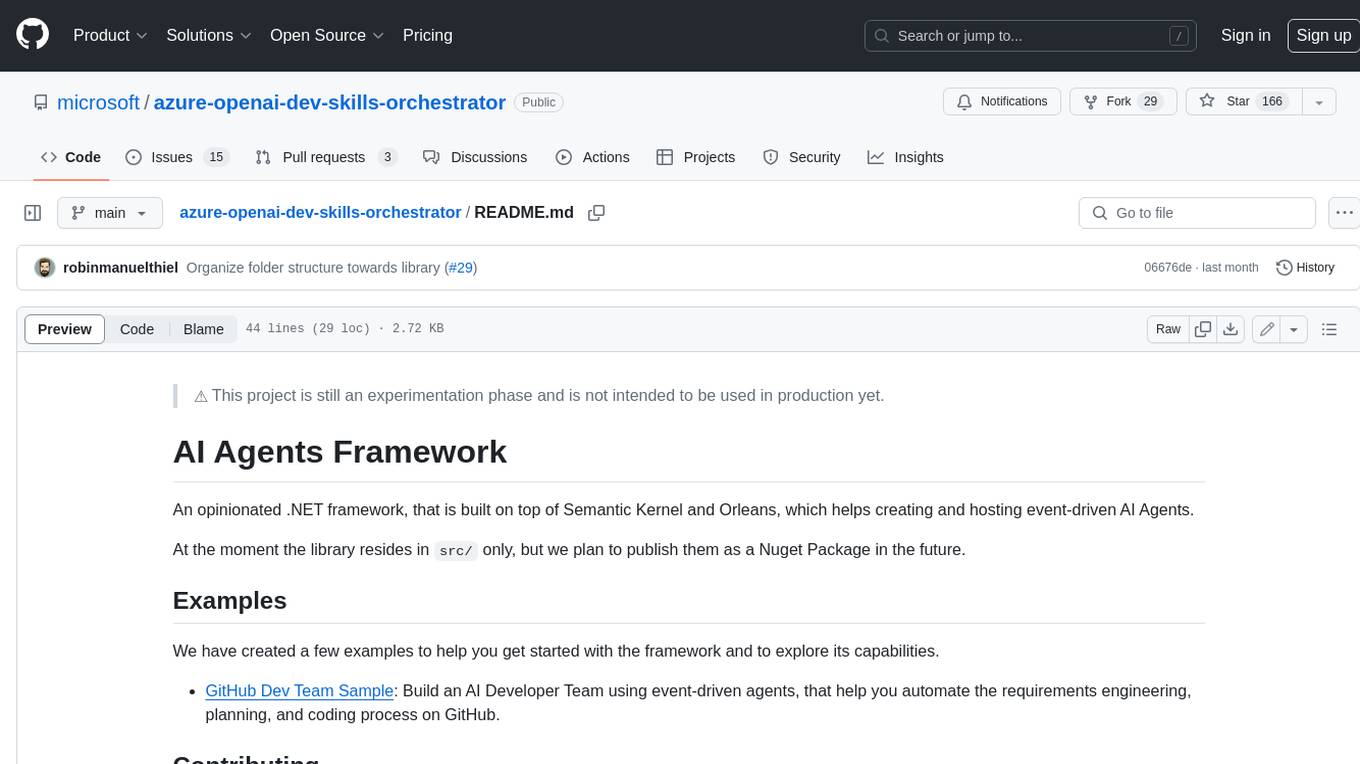
azure-openai-dev-skills-orchestrator
An opinionated .NET framework, that is built on top of Semantic Kernel and Orleans, which helps creating and hosting event-driven AI Agents.
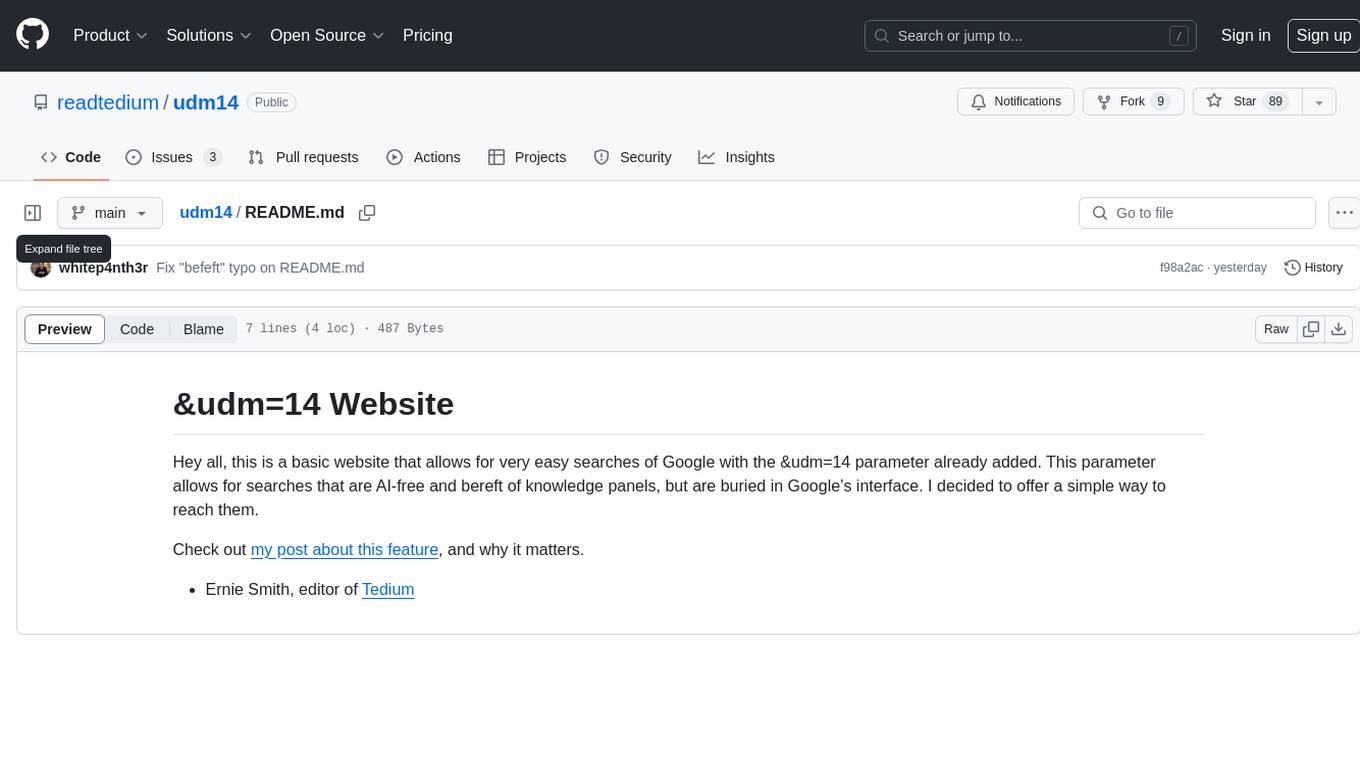
udm14
udm14 is a basic website designed to facilitate easy searches on Google with the &udm=14 parameter, ensuring AI-free results without knowledge panels. The tool simplifies access to these specific search results buried within Google's interface, providing a straightforward solution for users seeking this functionality.
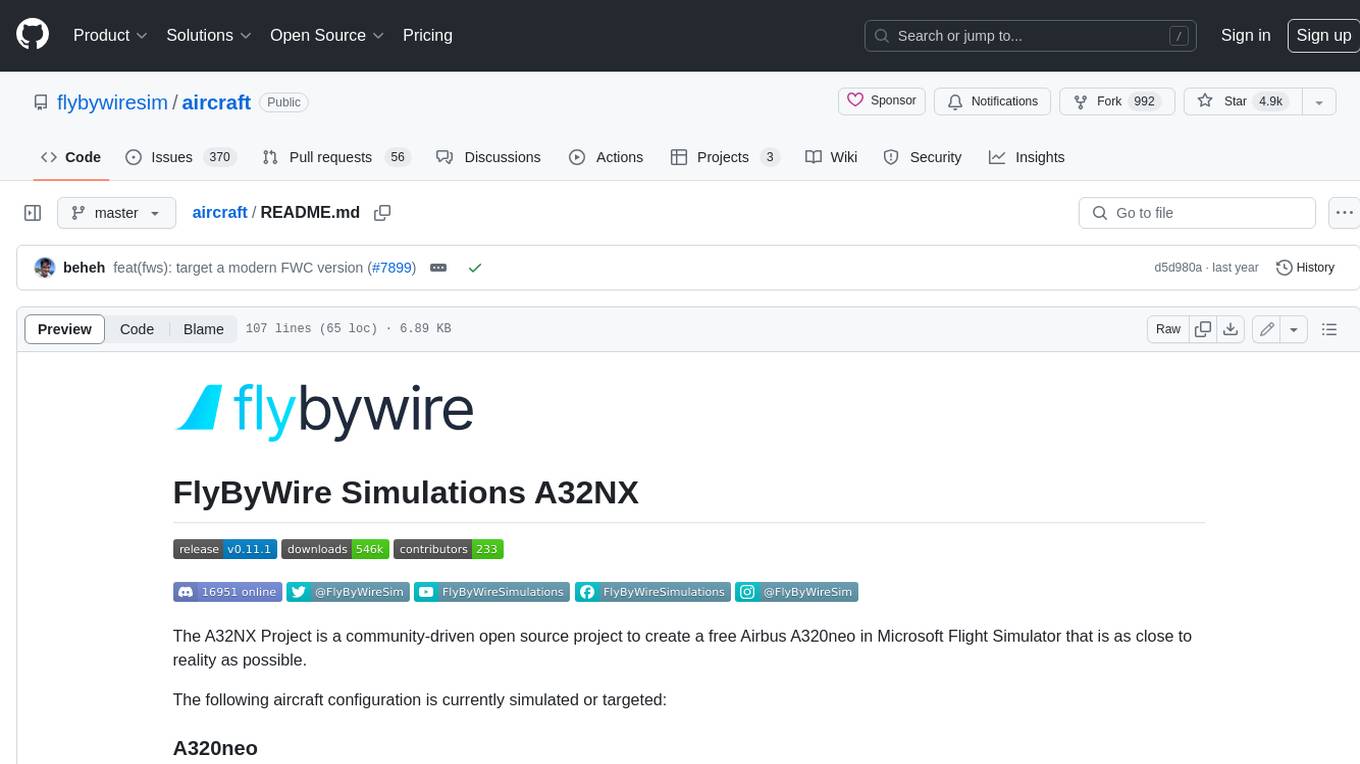
aircraft
The FlyByWire Simulations A32NX is a community-driven open source project to create a free Airbus A320neo in Microsoft Flight Simulator that is as close to reality as possible. The aircraft is currently in development, but it already features a high level of detail and accuracy, including a fully functional flight management system, realistic flight dynamics, and a detailed 3D model. The A32NX is a great choice for simmers who want to experience the thrill of flying a modern airliner without having to spend a lot of money on payware aircraft.
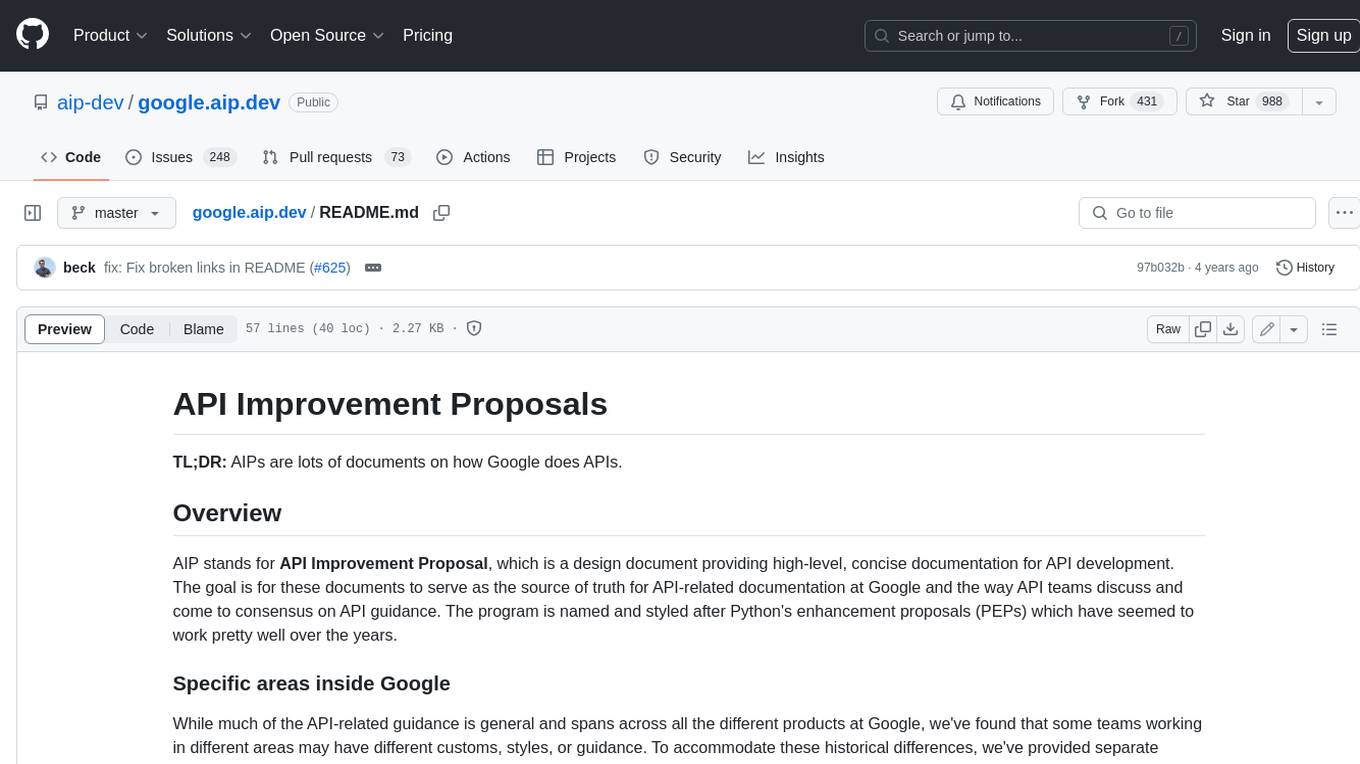
google.aip.dev
API Improvement Proposals (AIPs) are design documents that provide high-level, concise documentation for API development at Google. The goal of AIPs is to serve as the source of truth for API-related documentation and to facilitate discussion and consensus among API teams. AIPs are similar to Python's enhancement proposals (PEPs) and are organized into different areas within Google to accommodate historical differences in customs, styles, and guidance.
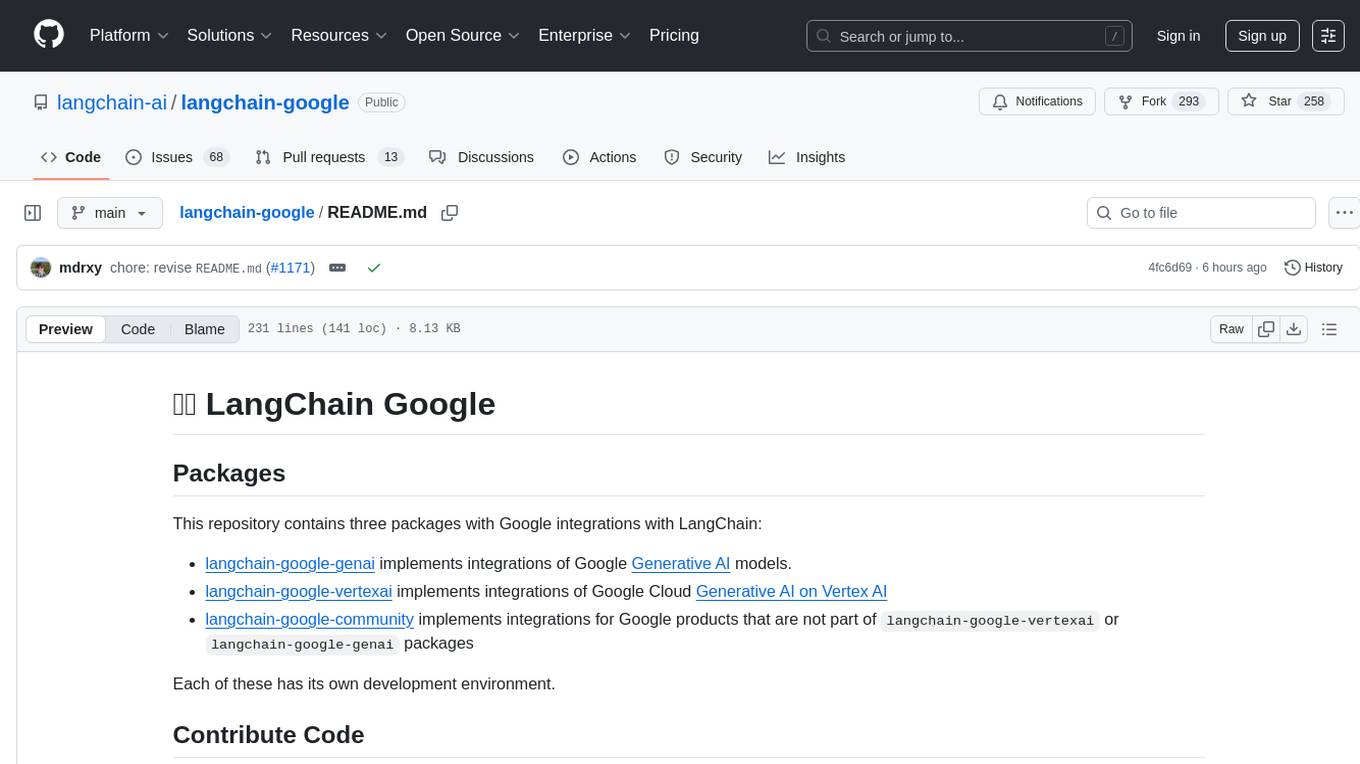
langchain-google
LangChain Google is a repository containing three packages with Google integrations: langchain-google-genai for Google Generative AI models, langchain-google-vertexai for Google Cloud Generative AI on Vertex AI, and langchain-google-community for other Google product integrations. The repository is organized as a monorepo with a structure including libs for different packages, and files like pyproject.toml and Makefile for building, linting, and testing. It provides guidelines for contributing, local development dependencies installation, formatting, linting, working with optional dependencies, and testing with unit and integration tests. The focus is on maintaining unit test coverage and avoiding excessive integration tests, with annotations for GCP infrastructure-dependent tests.
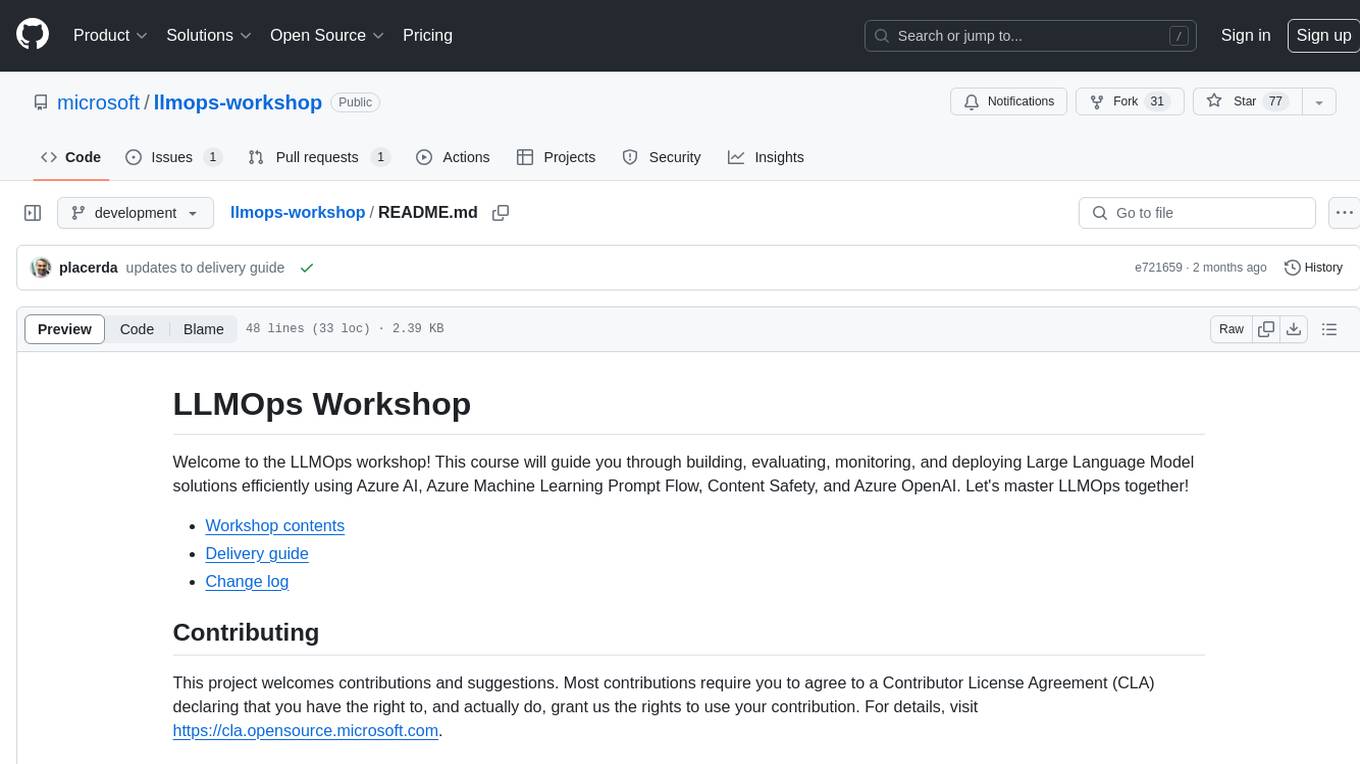
llmops-workshop
LLMOps Workshop is a course designed to help users build, evaluate, monitor, and deploy Large Language Model solutions efficiently using Azure AI, Azure Machine Learning Prompt Flow, Content Safety, and Azure OpenAI. The workshop covers various aspects of LLMOps to help users master the process.
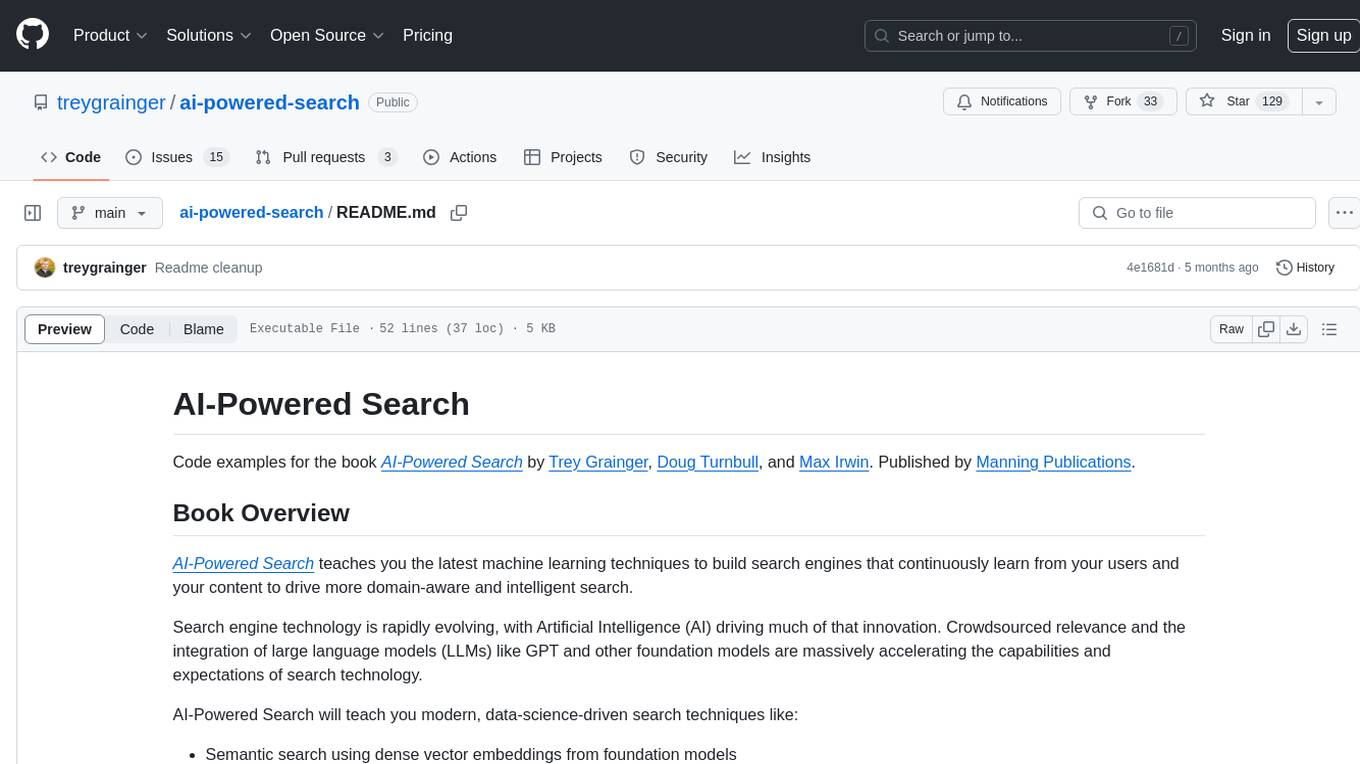
ai-powered-search
AI-Powered Search provides code examples for the book 'AI-Powered Search' by Trey Grainger, Doug Turnbull, and Max Irwin. The book teaches modern machine learning techniques for building search engines that continuously learn from users and content to deliver more intelligent and domain-aware search experiences. It covers semantic search, retrieval augmented generation, question answering, summarization, fine-tuning transformer-based models, personalized search, machine-learned ranking, click models, and more. The code examples are in Python, leveraging PySpark for data processing and Apache Solr as the default search engine. The repository is open source under the Apache License, Version 2.0.
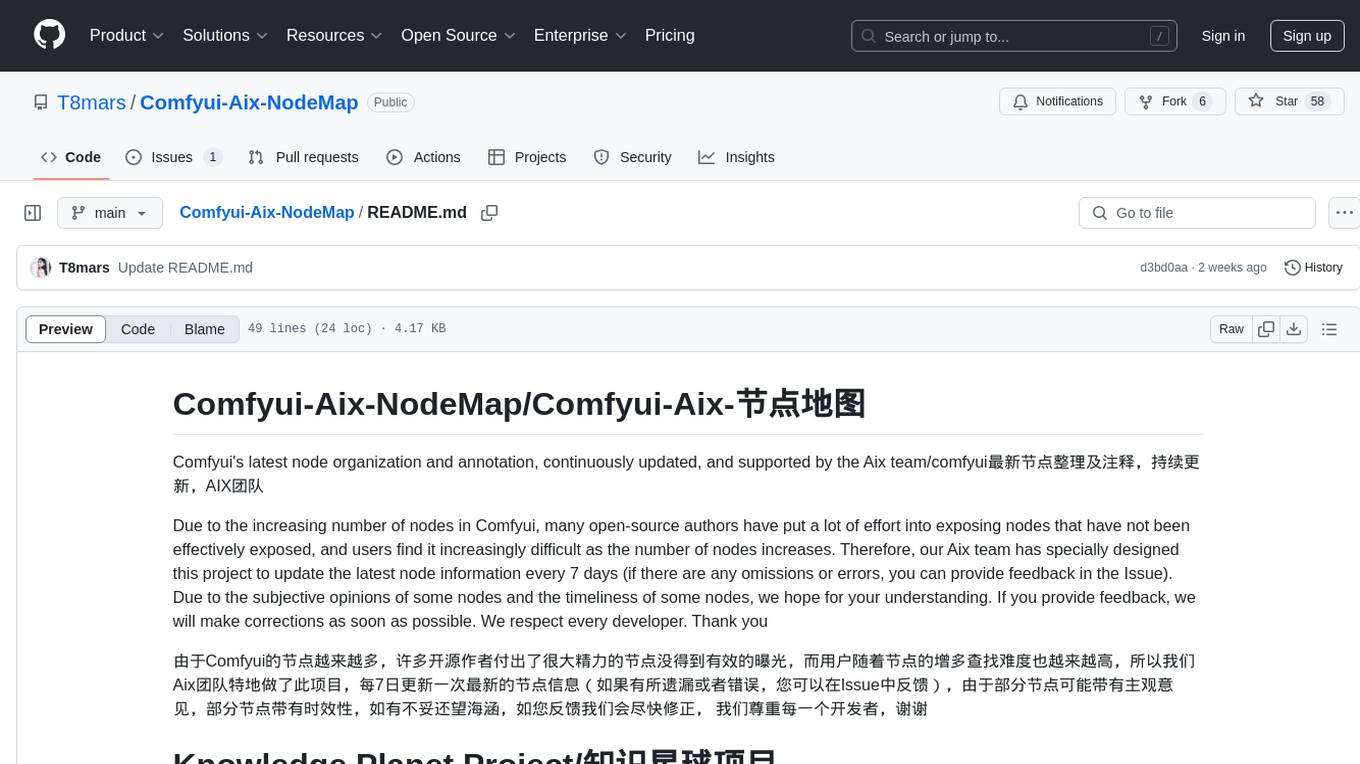
Comfyui-Aix-NodeMap
Comfyui-Aix-NodeMap is a project by the Aix team to organize and annotate the latest nodes in Comfyui. It aims to address the challenge of finding nodes effectively due to the increasing number of nodes. The project is updated every 7 days to provide the most recent node information. Users can provide feedback for any omissions or errors, and corrections will be made promptly. The project respects every developer and values community collaboration in improving node exposure and accessibility.
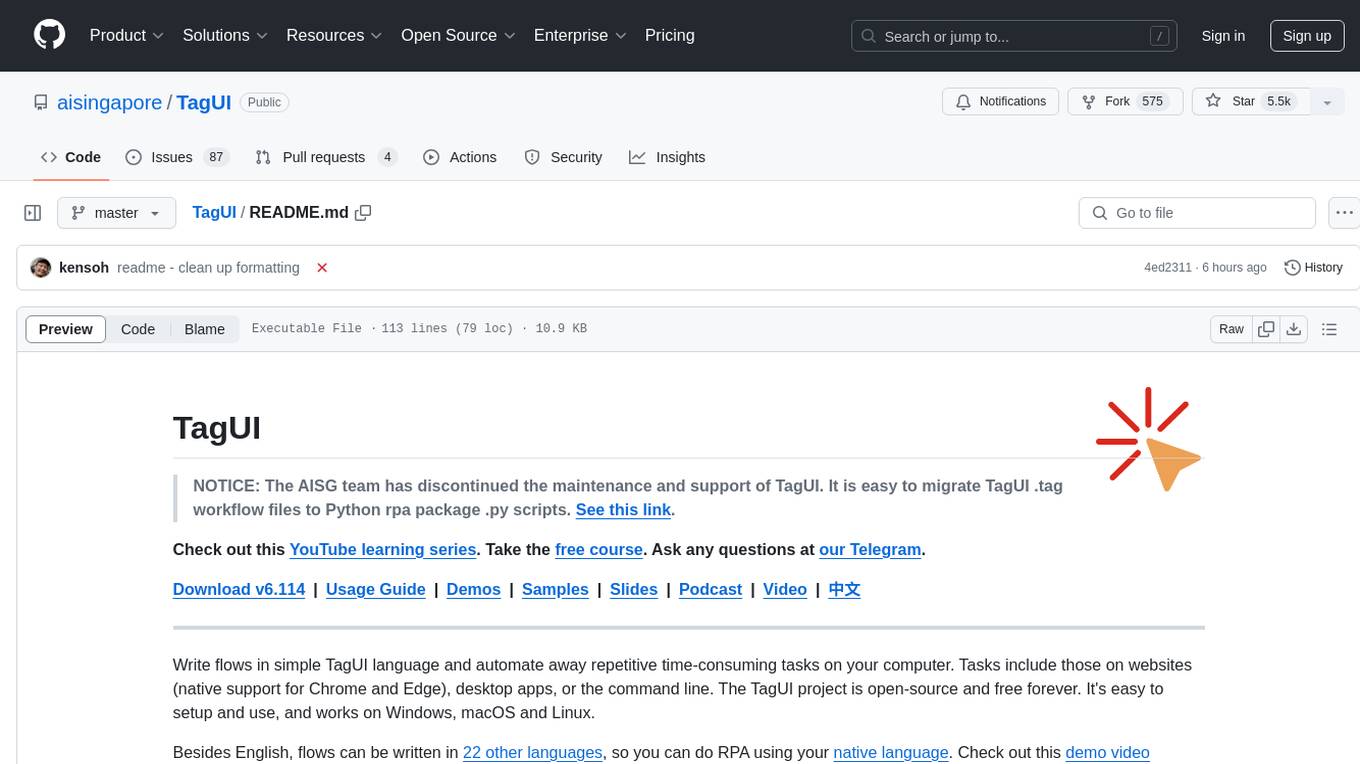
TagUI
TagUI is an open-source RPA tool that allows users to automate repetitive tasks on their computer, including tasks on websites, desktop apps, and the command line. It supports multiple languages and offers features like interacting with identifiers, automating data collection, moving data between TagUI and Excel, and sending Telegram notifications. Users can create RPA robots using MS Office Plug-ins or text editors, run TagUI on the cloud, and integrate with other RPA tools. TagUI prioritizes enterprise security by running on users' computers and not storing data. It offers detailed logs, enterprise installation guides, and support for centralised reporting.
For similar tasks

Airports
Airports is a repository containing an up-to-date CSV dump of the Travelhackingtool.com airport database. It provides basic information about every IATA airport and city code worldwide, including IATA code, ICAO code, timezone, name, city code, country code, URL, elevation, coordinates, and geo-encoded city, county, and state.
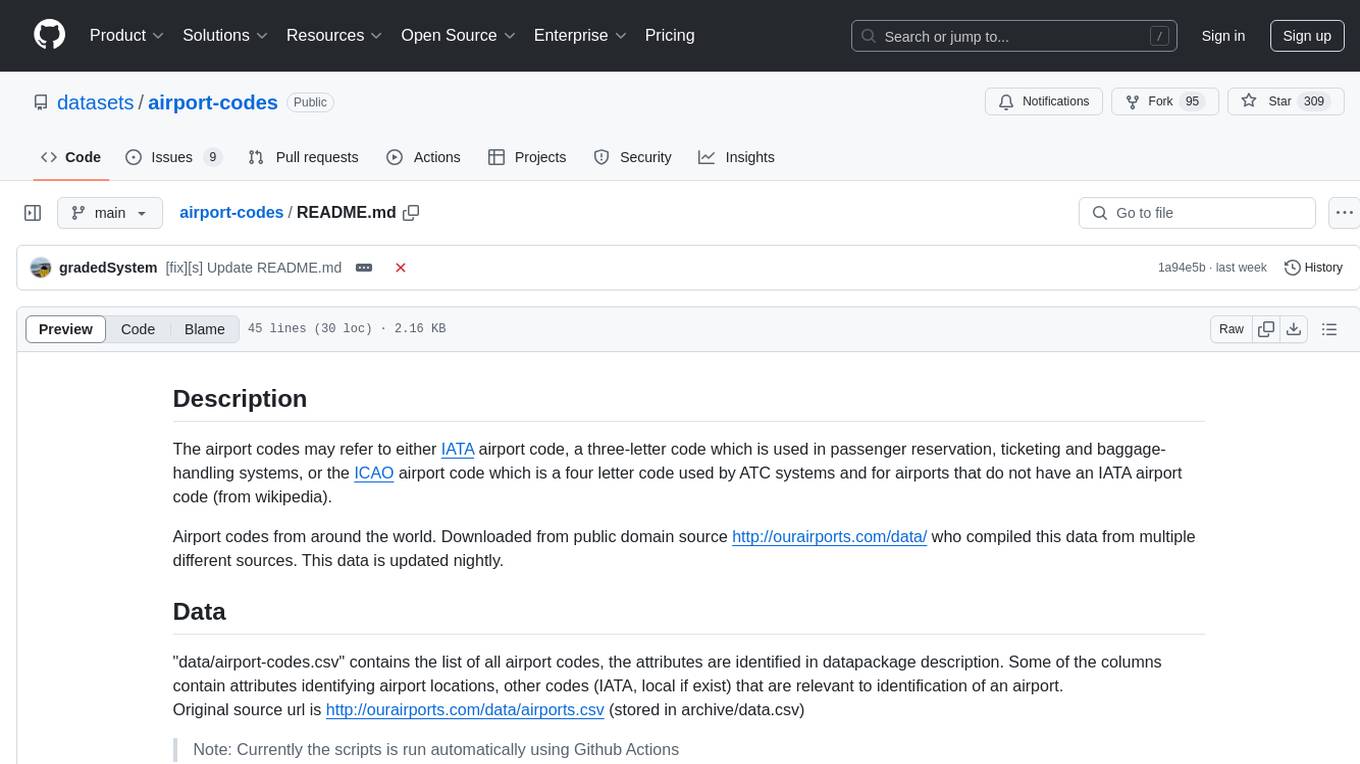
airport-codes
The airport-codes repository contains a list of airport codes from around the world, including IATA and ICAO codes. The data is sourced from multiple different sources and is updated nightly. The repository provides a script to process the data and merge location coordinates. The data can be used for various purposes such as passenger reservation, ticketing, and ATC systems.
For similar jobs

lollms-webui
LoLLMs WebUI (Lord of Large Language Multimodal Systems: One tool to rule them all) is a user-friendly interface to access and utilize various LLM (Large Language Models) and other AI models for a wide range of tasks. With over 500 AI expert conditionings across diverse domains and more than 2500 fine tuned models over multiple domains, LoLLMs WebUI provides an immediate resource for any problem, from car repair to coding assistance, legal matters, medical diagnosis, entertainment, and more. The easy-to-use UI with light and dark mode options, integration with GitHub repository, support for different personalities, and features like thumb up/down rating, copy, edit, and remove messages, local database storage, search, export, and delete multiple discussions, make LoLLMs WebUI a powerful and versatile tool.

Azure-Analytics-and-AI-Engagement
The Azure-Analytics-and-AI-Engagement repository provides packaged Industry Scenario DREAM Demos with ARM templates (Containing a demo web application, Power BI reports, Synapse resources, AML Notebooks etc.) that can be deployed in a customer’s subscription using the CAPE tool within a matter of few hours. Partners can also deploy DREAM Demos in their own subscriptions using DPoC.

minio
MinIO is a High Performance Object Storage released under GNU Affero General Public License v3.0. It is API compatible with Amazon S3 cloud storage service. Use MinIO to build high performance infrastructure for machine learning, analytics and application data workloads.

mage-ai
Mage is an open-source data pipeline tool for transforming and integrating data. It offers an easy developer experience, engineering best practices built-in, and data as a first-class citizen. Mage makes it easy to build, preview, and launch data pipelines, and provides observability and scaling capabilities. It supports data integrations, streaming pipelines, and dbt integration.

AiTreasureBox
AiTreasureBox is a versatile AI tool that provides a collection of pre-trained models and algorithms for various machine learning tasks. It simplifies the process of implementing AI solutions by offering ready-to-use components that can be easily integrated into projects. With AiTreasureBox, users can quickly prototype and deploy AI applications without the need for extensive knowledge in machine learning or deep learning. The tool covers a wide range of tasks such as image classification, text generation, sentiment analysis, object detection, and more. It is designed to be user-friendly and accessible to both beginners and experienced developers, making AI development more efficient and accessible to a wider audience.

tidb
TiDB is an open-source distributed SQL database that supports Hybrid Transactional and Analytical Processing (HTAP) workloads. It is MySQL compatible and features horizontal scalability, strong consistency, and high availability.

airbyte
Airbyte is an open-source data integration platform that makes it easy to move data from any source to any destination. With Airbyte, you can build and manage data pipelines without writing any code. Airbyte provides a library of pre-built connectors that make it easy to connect to popular data sources and destinations. You can also create your own connectors using Airbyte's no-code Connector Builder or low-code CDK. Airbyte is used by data engineers and analysts at companies of all sizes to build and manage their data pipelines.

labelbox-python
Labelbox is a data-centric AI platform for enterprises to develop, optimize, and use AI to solve problems and power new products and services. Enterprises use Labelbox to curate data, generate high-quality human feedback data for computer vision and LLMs, evaluate model performance, and automate tasks by combining AI and human-centric workflows. The academic & research community uses Labelbox for cutting-edge AI research.
